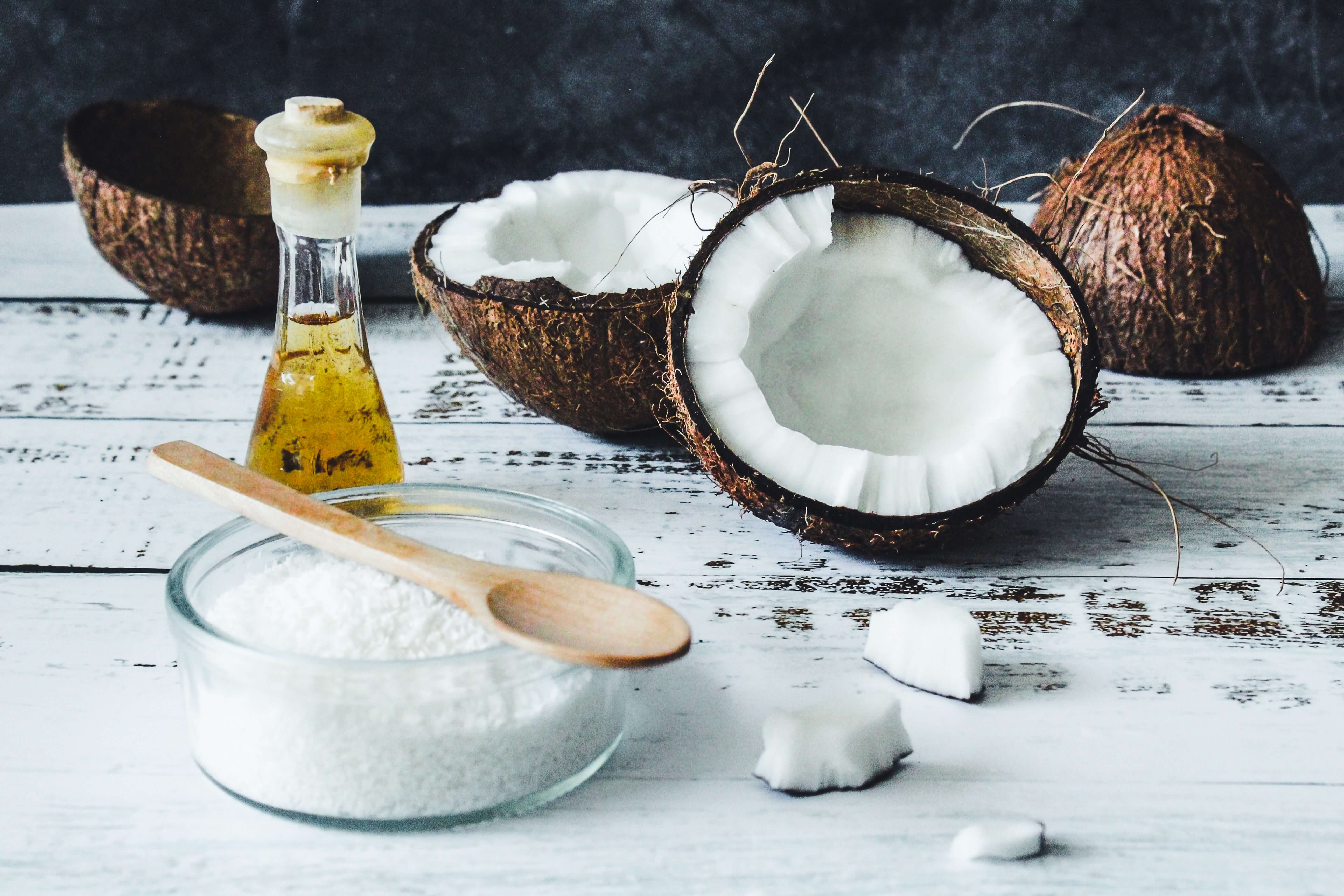What Is Caprylic Acid And What Does It Do?

Caprylic acid, a type of medium chain triglyceride found in coconut oil, has been reported to provide a number of medical health benefits. But can it help with weight loss and exercise performance goals? The following will discuss the reported benefits.
In addition, we'll discuss where it's sourced from, who should consider taking it, when and how to take it, as well as whether or not there is any reported side effects.
What Is Caprylic Acid?
Caprylic acid is a type of medium chain triglyceride. Triglyceride is the scientific term for fat as fat is made up of a glyceride molecule and three fatty acids. What differentiates different types of fats is the length of the fatty acid chains.
Fatty acid chains are made up of carbon atoms with longer chain fatty acids containing more carbon atoms. As a result of this difference in chemical structure, medium chain fatty acids are broken down at a faster rate.
This results in quicker energy production and less storage in the body.1 This has led to the suggestion that MCT may help maintain body weight better than LCT which when eaten to excess are stored as body fat.1
Due to their fast metabolism rate resulting in faster energy production, MCT has also been researched investing their usage as a fuel source to aid sporting performance.2
Where Is It Sourced From?
Answer
It is found in dairy products such as butter and milk, palm kernel oil and coconut oil.1

Caprylic Acid Benefits
It May Help To Provide You With Energy While Eating Low Carb
Due to its chemical structure, caprylic acid is easily broken down and provides a quick dose of energy. As such, MCT supplements have been researched to see if they will aid sporting performance.2
While the evidence is limited to show they are more beneficial than carbohydrates for performance2, MCT (made up predominately of caprylic acid) may be a worthwhile pre-workout supplement for those following a low carbohydrate diet.
Additionally, if improving body composition is the goal, cycling carbohydrate intake and performing some training sessions with low carbohydrate availability has been shown to increase fat oxidation during that session3 – which may lead to greater fat loss in the long term.
Caprylic Acid May Help Reduce Digestive Problems
Gastrointestinal issues can be an issue with those performing endurance exercise with up to a large number of runners reporting gastrointestinal distress.4
In those with IBD, there is evidence to suggest that caprylic acid may help to reduce symptoms.5 It should be noted that there is currently no research into the use of caprylic acid in exercise related gastrointestinal issues.
In fact, large doses of MCT have actually been shown to increase gastrointestinal complaints during long bouts of endurance exercise.2
It May Help You Lose Weight On A Short Term Basis
As it is easily broken down in the body, MCT is less likely to be stored as fat in comparison to LCFA.1 Due to this, MCT has been investigated to see if it can help with weight loss.
While short term studies have shown that there may be less fat storage, in the long term this doesn’t appear to be the case and the evidence is limited to show that caprylic acid will help with weight loss goals.6

Who Should Take Caprylic Acid?
For Whom It Might Be Useful / Beneficial
Caprylic acid may be useful for those following a low carbohydrate diet and are looking for an energy source pre-workout. It may also be useful a supplement if you’re cycling your carbohydrate intake and performing specific sessions in a glycogen depleted state.
Caprylic Acid Dosage
When To Take And How Much
There is no current guidance or evidence for an optimal dosage of caprylic acid. Some studies investigating caprylic acid’s effect on medical issues such as Alzheimer's have used dosages up to 20g per day without any adverse effects.7
However, most manufactures of dietary supplements recommend using up to 1g per day (approx. 1-2 capsules).
Caprylic Acid Side-Effects
When consumed in food caprylic doses are safe and it is unlikely you will notice any side effects. Doses of up to 20g per day while investigating its effect on medical conditions there have also been no adverse effects.7
However, in some research studies using high doses of caprylic acid there have been reports of gastrointestinal issues such as nausea, diarrhea and bloating.
Take Home Message
Caprylic acid is a type of medium chain triglyceride that is quickly broken down to provide an energy source.
It may help provide you with fuel for a workout, especially if eating low carb, however, the benefits outside of this from a weight loss and exercise point of view are pretty limited.
Want more advice from our experts? Check these out next:

What is Hyaluronic Acid?

When and How to Take Probiotics
Things you should know about a gut health essential.

Liam is a certified sport nutritionist with the International Society of Sport Nutrition and is enrolled on the British Dietetics Association’s Sport and Exercise Nutrition register. He has a Bachelor’s of Science in Sport and Exercise Science and is graduate of the ISSN Diploma in Applied Sport and Exercise Nutrition.
Liam is an experienced personal trainer, helping clients reach their health and fitness goals with practical, evidence informed exercise and nutrition advice.
In his spare time Liam has competed in numerous powerlifting competitions and enjoys hill walking, football and expanding his recipe repertoire in the kitchen. Find out more about Liam's experience here.







